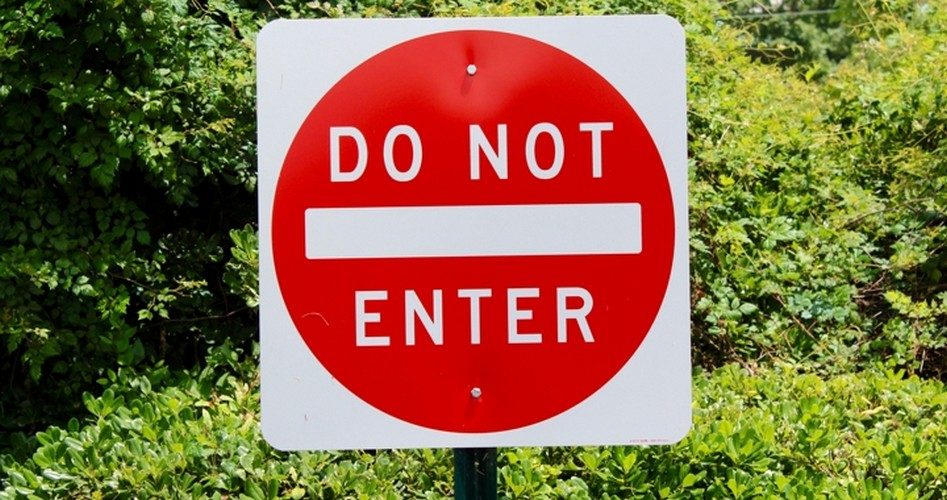
President Donald Trump is expected to sign an executive order soon that will suspend the issuance of visas and other immigration benefits to “nationals of countries of particular concern.” Though that definition (taken from an unsigned draft of the proposed order obtained by several news outlets and posted online by the LexisNexis legal research website) does not specifically mention “Muslim” or “Islamic” nations, the order is widely being interpreted as a ban on immigration from Muslim counties. Reports from news outlets including Reuters, AFP, The Hill, and the Washington Post have all named Iraq, Syria, Iran, Sudan, Libya, Somalia, and Yemen as countries that would be included in the ban.
Several nations with Muslim populations larger that those named above were not included, including Indonesia, Pakistan, Bangladesh, and Egypt, lending validity to the Trump administration claim that the presence of terrorist activity, rather than religion, was the prime determining factor in deciding which nations should be included.
During an interview with Trump on January 25, ABC News anchor David Muir said to the president, “You’re about to sign a sweeping executive action to suspend immigration to this country.”
After Trump confirmed this, Muir asked, “Who are we talking about? Is this the Muslim ban?”
Trump replied as follows: “Were talking about — no it’s not the Muslim ban. But it’s countries that have tremendous terror. It’s countries that we’re going to be spelling out in a little while in the same speech. And it’s countries that people are going to come in and cause us tremendous problems. Our country has enough problems without allowing people to come in who, in many cases or in some cases, are looking to do tremendous destruction.”
The draft executive order that Trump is expected to sign is tentatively entitled “Protecting the Nation from Terrorist Attacks by Foreign Nationals.” It starts by observing that “the visa-issuance process plays a crucial role in detecting individuals with terrorist ties and stopping them from entering the United States” and offered as an historic example of the consequences of failing to properly vet immigrants the terrorist attacks of September 11, 2001. It stated that prior to those attacks “State Department policy prevented consular officers from properly scrutinizing the visa applications of several of the 19 foreign nationals who went on to murder nearly 3,000 Americans.”
The proposed order continues by warning:
Hundreds of foreign-born individuals have been convicted or implicated in terrorism related crimes since September 11, 2001, including foreign nationals who entered the United States after claiming asylum; after receiving visitor, student, or employment visas; or through the U.S. refugee resettlement program. Deteriorating conditions in certain countries due to war, strife, disaster, and civil unrest increase the likelihood that terrorists will use any means possible to enter our country.
The anticipated executive order goes on to specify how its objectives are to be implemented. Under the heading “Suspension of Issuance of Visas and Other Immigration Benefits to Nationals of Countries of Particular Concern,” the document provides that the secretary of Homeland Security, in consultation with the secretary of State and the director of National Intelligence, are to conduct an immediate review to determine what information is needed from any country for adjudication of any visa, admission, or other immigration benefit. The purpose of this review will be “to determine that the individual seeking the benefit is who the individual claims to be and is not a security or public-safety threat.”
The order directs the secretary of State to suspend the U.S. Refugee Admissions Program (USRAP) for 120 days and specifies that during that 120-day period, the secretary of State and the secretary of Homeland Security shall review the USRAP application and adjudication process to determine what additional procedures can be taken to ensure that those approved for refugee admission do not pose a threat to the security and welfare of the United States.
The order will also direct the secretary of Homeland Security, in consultation with the secretary of State, to submit to the president a list of countries recommended for inclusion on a presidential proclamation that would prohibit the entry of foreign nationals from each country on the list.
The only country that is specifically named in the order is Syria. The order provides:
The Secretaries of State and Homeland Security, as appropriate, shall cease refugee processing of and the admittance of nationals of Syria as refugees until such time as I have determined that sufficient changes have been made to the USRAP to ensure its alignment with the national interest.
The order also provides for “safe zones” in Syria:
Pursuant to the cessation of refugee processing for Syrian nationals, the Secretary of State, in conjunction with the Secretary of Defense, is directed within 90 days of the date of this order to produce a plan to provide safe areas in Syria and in the surrounding region in which Syrian nationals displaced from their homeland can await firm settlement, such as repatriation or potential third-country resettlement.
As we write, Trump has not yet issued his executive order, “Protecting the Nation from Terrorist Attacks by Foreign Nationals.” However, within hours after he does so, a copy should be posted on the White House website, under the Presidential Actions section.
Related articles:
Regarding Fake Passports for Syrians
Obama Scrapping Registration of Aliens From Mostly Muslim Nations
Sons of Middle Eastern Immigrants Recruited by Terrorist Groups
Border Patrol: Arrests of Pakistanis, Afghans Up This Year
Military Concerned About Large Numbers of Individuals From Terrorist Regions Crossing Border
Smuggling Network Brings Aliens With Terrorist Ties Across U.S. Border
Mexican Cartels Moving Terrorists Across Southern U.S. Border
Terrorist Smuggling Into U.S. a Real Concern
Pakistanis With Terrorism Ties Caught After Crossing U.S.-Mexican Border


